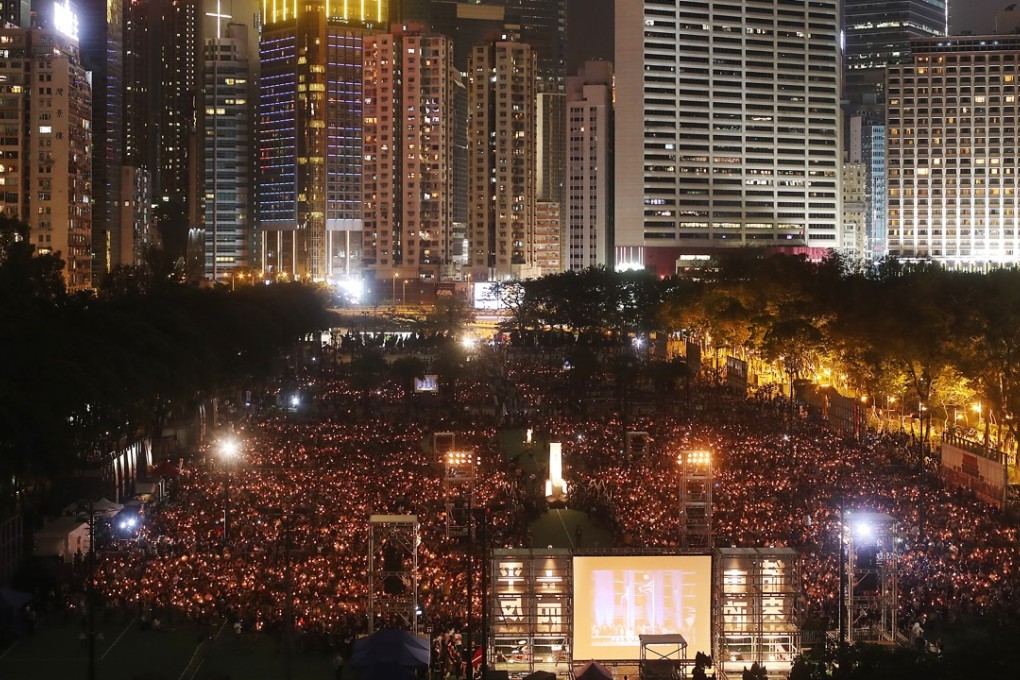Advertisement
Why are Hong Kong activists arguing over the annual June 4 vigil? And are we too fixated on the turnout?
The commemoration has come to mean different things to different Hongkongers, and just had its lowest attendance in almost a decade
Reading Time:2 minutes
Why you can trust SCMP

The turnout at the annual June 4 commemoration on Sunday night was the lowest since 2008.
That has again highlighted the rise in localism in Hong Kong, and the idea that dwindling interest among young people in the events of 1989 mean the symbolic event will one day be forgotten in the city.
Older democrats at the memorial to those killed during the Tiananmen Square crackdown 28 years ago voice hope for a democratic China.
Advertisement
But some young people see at most a tenuous link between the event and their fight for democracy in Hong Kong.
Advertisement
Q: Is the 110,000 turnout for this year’s candlelight vigil really that bad?
Advertisement
Select Voice
Choose your listening speed
Get through articles 2x faster
1.25x
250 WPM
Slow
Average
Fast
1.25x